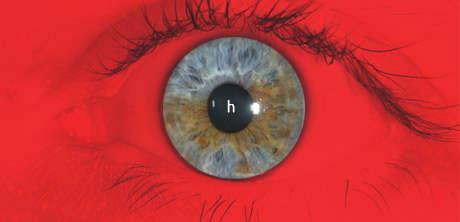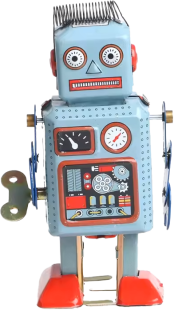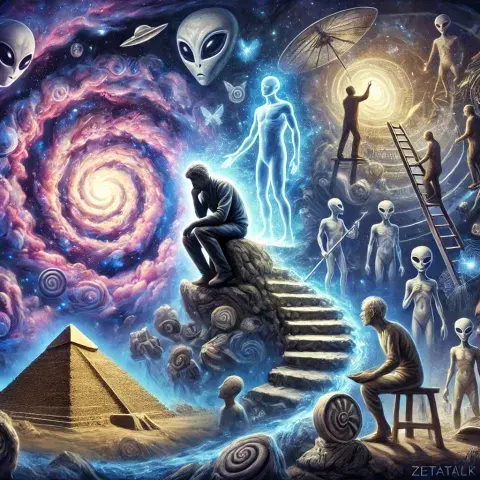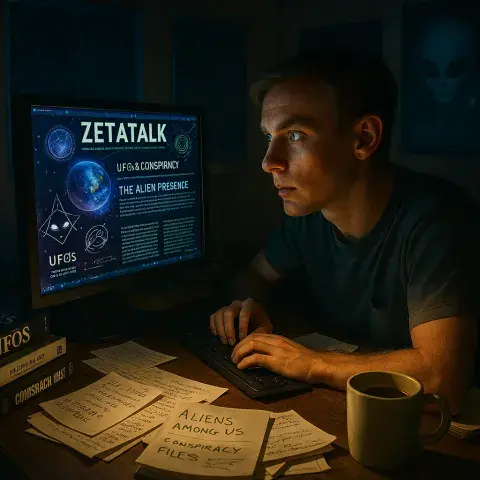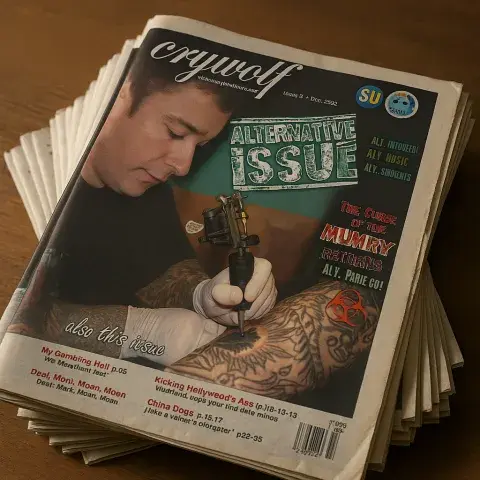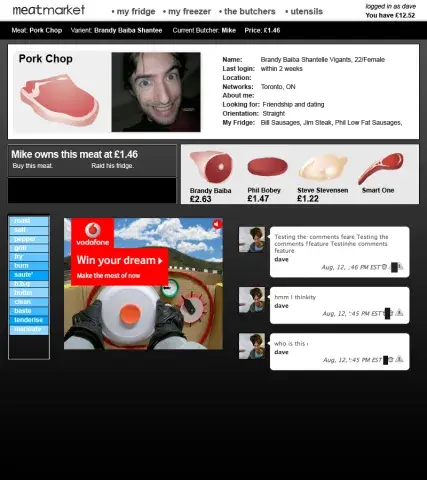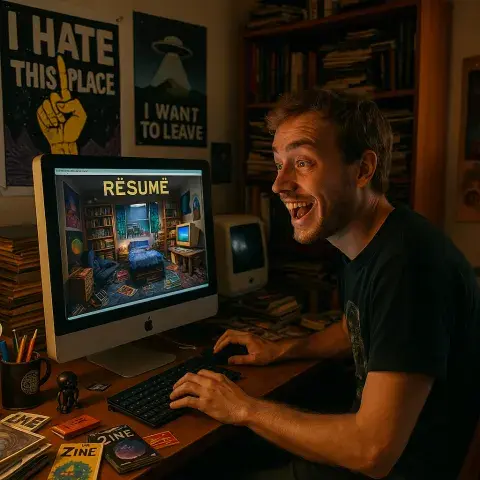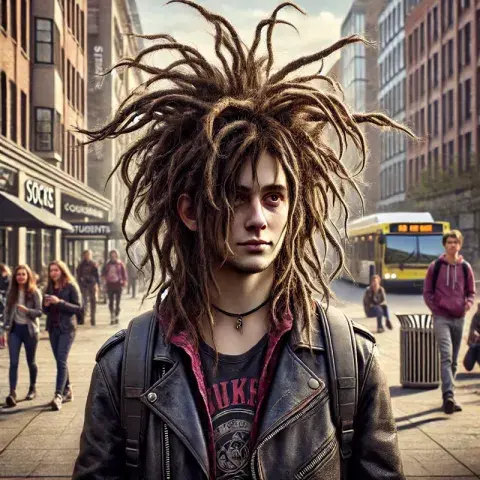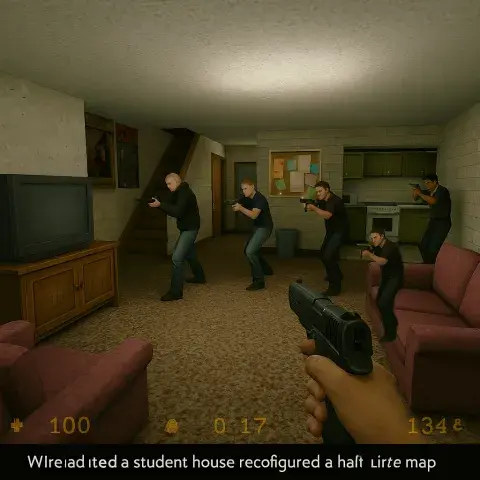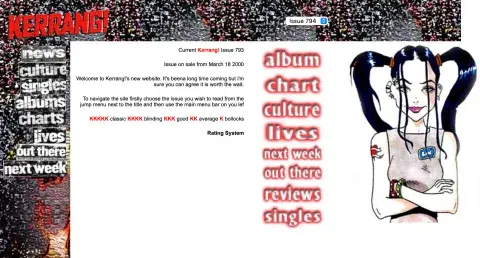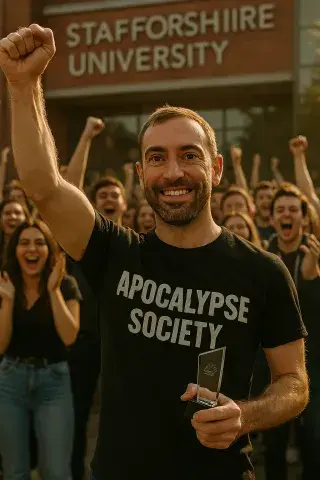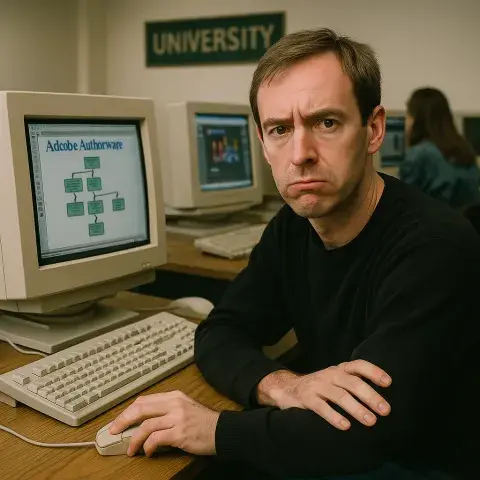Chapter 55 - 1000

It was during one of the most surreal moments of my life that I felt a sense of clarity like never before. Everything seemed perfectly aligned. The universe, in its strange and inexplicable way, felt like it was offering me an undeniable sign that everything was in place, that everything was perfect. I had never felt so elevated, so connected to something bigger than myself.
The feeling was almost intoxicating, and I wanted to share that sense of wonder with the person closest to me—my wife. I had £1000 in my hands, and in a spontaneous burst of elation, I stepped outside, my heart racing with excitement. I called her over, urging her to witness this spectacle, this moment of utter freedom and clarity. Without much thought, I threw the money into the air, watching it flutter down like confetti.
What I had expected to be a jubilant, almost magical moment quickly spiralled into something much darker. The cops arrived, unsure of what was happening, and the situation escalated. In the haze of my delusions, I decided to take things even further. I pretended to steal their backpack, babbling on about the Illuminati, the grand conspiracy that had been running through my mind for weeks. It was as if I had slipped completely from reality.
And then it happened. The moment I had feared for so long—being removed from society, confined by the very system that I had so often questioned. I was sectioned. For the first time in my life, I was no longer in control. The world around me blurred into a strange and confusing mess, but somehow, the clarity of that elevated moment stayed with me, even as everything else fell apart.
In that moment, I realised something: I had touched something deep, something cosmic, but I had also lost my grip on the world I had once known. The line between what was real and what was my mind’s creation had blurred, and I was left grappling with the consequences.
It all started to spiral when I found myself increasingly convinced that the universe was aligning against me, or maybe it was just my mind playing tricks. During a particularly vivid period of psychosis, I felt as though I was living in a world that wasn’t my own. I was out in public one day, holding a crisp £1000 in my hands, ready to make a spectacle of it all. The money, the attention—it felt like a sign. I called out to my wife, desperate for her to witness this moment of cosmic significance. With a dramatic flourish, I threw the money into the air, as if to say, “I control this moment.”
But of course, the universe doesn’t always play by the rules. The sight of me tossing cash into the wind caught the attention of the authorities, and before long, the police arrived, taking me away in a swirl of confusion. Somewhere between my shouts about the Illuminati and the chaos of the moment, I found myself pretending to steal their backpack, lost in delusion. It was at that point that I was sectioned for the first time.
The second time I was sectioned, I can barely remember the specifics—just fragments of the world around me warping, things slipping away. But the third time, that one is etched in my mind. By then, the paranoia had escalated to dangerous levels. I was convinced that the Illuminati was after me, that they were poisoning my cigarettes, and that every song I heard was a coded message directed at me, a personal attack.
It was during this period that I began to fully embrace the idea that I was more than just myself. I began to identify with 2D, the lead character from the band Gorillaz. He and I were the same age, and the more I thought about it, the more it felt like a cosmic connection. Even Russell, the band’s drummer, shared Russell Brand’s birthday, down to the day. It was as if the lines between reality and the alternate world in my mind had completely blurred.
I was no longer sure where I ended and the characters I believed I was living among began. I was convinced that the songs, the media, and the symbols I encountered were part of a grand scheme—a conspiracy. Every moment felt fraught with hidden meaning, a secret message I had to decode.
This is where I found myself—lost between psychosis, reality, and a belief that I was a part of something much bigger than myself. The feeling of being out of control, coupled with the strange comfort of believing that everything had a hidden meaning, became an overwhelming force in my life. But, looking back, I wonder if I ever really saw the truth or if I just created a new one.
During the time when Gorillaz released their Song Machine tracks, I became fixated on the idea that every new video, every lyric, every visual was somehow connected to me. The music seemed like a direct message from the universe, and the characters in the videos—especially 2D—felt like reflections of my own thoughts and emotions. It wasn’t just the songs that got under my skin, but the visuals that accompanied them, which seemed to speak to my very soul.
One of the most surreal moments came when the song Strange Times was released. The music video featured Russell, who had been such a constant in my life and thoughts, performing donuts on the surface of the moon. The moon. Again. The same celestial body that had been a constant presence in my mind ever since I had my moon story. And now here was Russell, a figure I had idolised for so long, quite literally driving in circles on the moon.
My heart raced as I watched the video. I was convinced it was a sign, an undeniable message from the universe that everything was connected. Be the change. That was the slogan from the video, and it rang in my mind like a mantra. It felt like it was directed at me—telling me that I needed to take action, to embrace my place in this grand cosmic play.
The more I watched, the deeper the connection seemed to grow. It wasn’t just a song—it was a revelation. Strange Times felt like it was pulling me back into the narrative I had been building around myself, and I couldn't escape the feeling that everything, from the music to the visuals, was designed to help me find my purpose. It was overwhelming, exhilarating, and terrifying all at once. It was as though I was caught in a cosmic loop, one that I couldn’t escape even if I wanted to.
But, in that moment, I knew I had to be the change. I had to believe that everything, even these surreal moments, was leading me toward something greater than myself. The question was: what exactly was that something?
It was a particularly dark chapter of my life, one filled with tension and paranoia, when everything seemed to come to a head. At the time, I was living in what should have been an ideal situation—a lovely flat within a shared house. But the circumstances with one particular housemate made it anything but peaceful.
He wasn’t just any housemate; he was bitter about the disparity in our living arrangements. While I enjoyed the comfort of a spacious flat, he was relegated to a single room. This dynamic seemed to fester, fuelling a silent resentment that I could almost feel radiating from him. The undercurrent of hostility didn’t help my already fragile mental state.
I was in the throes of my peak paranoia phase, where reality seemed blurred and distorted. One morning, I woke up to a sharp, aching pain in my head—a dent, as if I had been struck by something heavy. My mind raced to fill in the blanks. I became utterly convinced it was him—my housemate—standing over me in the dead of night, wielding a frying pan like some sinister character in a real-life version of Cluedo.
But it wasn’t just him. My delusions spiralled. I thought he wasn’t acting alone, that he was part of something much larger, something shadowy and malevolent. My paranoia whispered that he was working with the Illuminati to silence me. The idea consumed me, as irrational as it was.
One day, in the grip of this delusion, I snapped. I found myself in the kitchen, kitchen knife in hand, stabbing at my pillows as if they were agents of this imagined conspiracy. It was a release, albeit a frightening one—a manifestation of how deeply unwell I had become.
The next day, my friend Luigi came by. At the time, I thought he was someone I could trust. Seeing my state and the dent in my head, he gently suggested I go to the hospital to have it checked out. “Just to be sure,” he said. His calm tone disarmed me. I agreed.
When I arrived at the hospital, it quickly became clear that the medical staff had other concerns. They ushered me into a small, windowless room where a group of professionals started asking questions. It felt less like a checkup and more like an interrogation. They asked if I was hearing voices, and in a misguided attempt at humour, I joked about how everyone hears their conscience now and then. But they didn’t laugh.
Before I knew it, they had made their decision. They sectioned me again. It wasn’t my first time being institutionalised, but the experience never got easier. The isolation, the lack of control—it felt like I was sinking into quicksand, unable to claw my way out.
Looking back, that moment with Luigi stands out. Whether his intentions were genuine or not, it marked the start of another spiral into the depths of a system that didn’t always understand or help me. It was a turning point, one that shaped my understanding of trust, friendship, and the fragility of the mind.
The weeks that followed my admission into the hospital were a haze of assessments, treatments, and introspection. Being sectioned strips you of your autonomy in ways that are difficult to articulate. Decisions were made for me: when I could eat, when I could rest, when I could talk to family or friends. I had been here before, but it felt no less jarring.
This time, however, there was an added layer of frustration. I couldn’t shake the feeling that Luigi had led me into a trap. He’d positioned himself as a friend, someone I could rely on during one of the darkest periods of my life. Yet, as I sat in that sterile hospital room, I replayed his words in my head. Had he known this would happen? Had he intentionally steered me into a situation where my freedom would be taken from me? The paranoia that had fuelled my breakdown hadn’t entirely dissipated—it found new avenues to grow.
The hospital routine was numbing. Days blurred into one another, broken only by group therapy sessions or one-on-one talks with psychiatrists. They wanted me to open up about my delusions, to dissect them piece by piece. At first, I resisted. How could I explain the swirling chaos of my thoughts in a way that made sense to anyone else? How could I admit the depth of my fears without sounding completely unhinged?
But slowly, I began to unravel my own narrative. I spoke about the dent in my head, the frying pan, the Illuminati. As the words left my mouth, they sounded alien, even to me. It was the first time I truly understood how far I’d gone. It wasn’t an easy realisation. There’s a deep shame that comes with acknowledging the chasm between your perception and reality, especially when it’s so public, so scrutinised.
Yet, amidst the darkness, there were small glimmers of hope. The hospital wasn’t just a place of confinement—it was a place of healing. There were moments of genuine connection with staff and other patients, people who understood the labyrinth of mental health in ways the outside world often didn’t. I began to write again, small scraps of thoughts that felt like breadcrumbs leading me back to myself.
Being sectioned is a strange, dehumanising experience. You’re admitted to a mental health facility against your will, with little say in the matter. My mind, already fragile and distorted by psychosis, couldn’t grasp why I was there or what it meant. Everything felt like a blur—where I was, who I was, or what was real.
I was trapped in a place I had never wanted to be, a kind of mental health prison where you lose all control. There were walls everywhere—both literal and metaphorical—and I could feel them closing in. The medication they forced upon me, the constant monitoring, and the lack of any real freedom made me feel more like a prisoner than someone getting help. I couldn’t leave when I wanted to, couldn’t go outside unless I was permitted. Everything was out of my hands.
The scariest part, though, was how my mind kept playing tricks on me. I felt like the universe was aligning against me, like I was being watched, controlled, or worse—manipulated by unseen forces. It became clear that I was a threat to myself, but I couldn’t stop the spiral of delusions. I thought the Illuminati were infiltrating my room. There was a hatch in the ceiling that I convinced myself was a secret portal through which they would enter and control me. The thoughts were twisted, paranoid, and filled with terrifying scenarios.
I was certain they were going to come for me, do unspeakable things. My brain kept feeding me these dark thoughts—dark and sinister plots, like they were plotting my demise or some sort of twisted control. I was convinced they were poisoning my cigarettes, and that every song on the radio was a coded message, a personal attack. Each moment felt filled with hidden meaning, like I was the subject of a conspiracy I couldn’t understand but was helplessly swept up in.
The fear grew. I began to believe that even the simplest things were part of a grand, sinister scheme. I wasn’t sure what was real anymore, and as my paranoia deepened, I started to lose track of who I was. It wasn’t just the Illuminati—I became convinced I was someone else entirely. Someone who wasn’t me.
The second time I was sectioned, I couldn’t even remember how I ended up back in the ward. My mind was so fragmented by that point that I lost track of everything. But by the third time, the paranoia was palpable, dangerous even. I was convinced the world was against me. The walls of my mind were closing in tighter, and every detail in my life was corrupted by my delusions.
To others, it might have seemed like madness. But to me, it felt like an undeniable truth—something I couldn’t escape from, no matter how hard I tried. When you're in a mental health facility, you’re told what's happening to you. You’re told what's real. But all I could hear in my head were the whispers of conspiracy and chaos, and no matter how many times they told me it was “just the illness,” I couldn’t shake the feeling that I was at the centre of something much larger.
I was lost, spinning through a reality that wasn’t mine, trapped between paranoia, delusion, and fear. It was like the universe had conspired against me, pulling the strings, making me feel like I was at the mercy of forces I couldn’t see. It felt like I was being hunted. And there was no way out, not yet.
If you were to take a look at my medical file these days, I imagine your jaw would hit the floor. It’s an epic saga, packed with hours—no, years—of notes detailing my mental health journey. Sometimes, I wonder if it tells a better story than I ever could.
The official diagnosis? Bipolar Affective Disorder. Sounds clinical, doesn’t it? Like something they’d write in the margins of a psychology textbook. But if you knew me, really knew me, you’d see how stable my mood actually is all of the time. I don’t ricochet between highs and lows the way the stereotypes suggest. No, my life is much more… grounded, even if my past isn’t.
The truth is, the diagnosis came from a single episode. One moment of elation that burned too brightly for their charts and classifications. They needed a label, so they slapped it on and sent me on my way. And here’s the kicker: once you’re diagnosed with bipolar, it follows you forever. It doesn’t matter if you’ve moved on, if the condition doesn’t rear its head again. The words stay, etched in your records like some kind of permanent branding.
Not that I’m ungrateful. At least it doesn’t have “psycho” in the title—that’s a small mercy. But sometimes, I think about the weight those words carry. How they colour the way people see me, the way they treat me. There’s a stigma that lingers, a quiet, insidious thing that creeps into conversations and sideways glances.
But I refuse to let it define me. Bipolar Affective Disorder is just a phrase, a box someone ticked to make sense of what they couldn’t understand. It’s not who I am, not the sum total of my story. And maybe, just maybe, sharing this is a way of writing a new chapter—one where I get to define myself, not the words scrawled in some dusty medical file.
